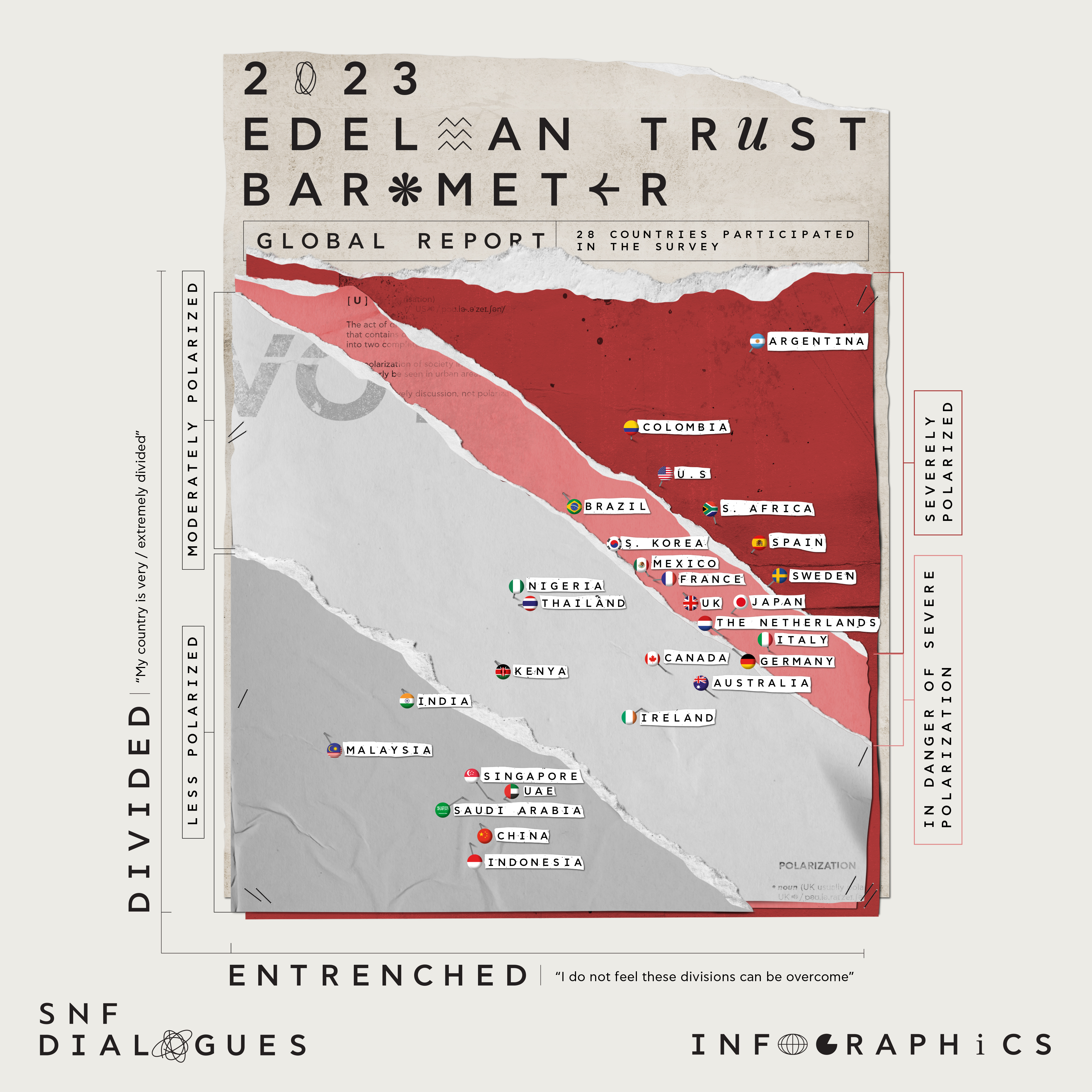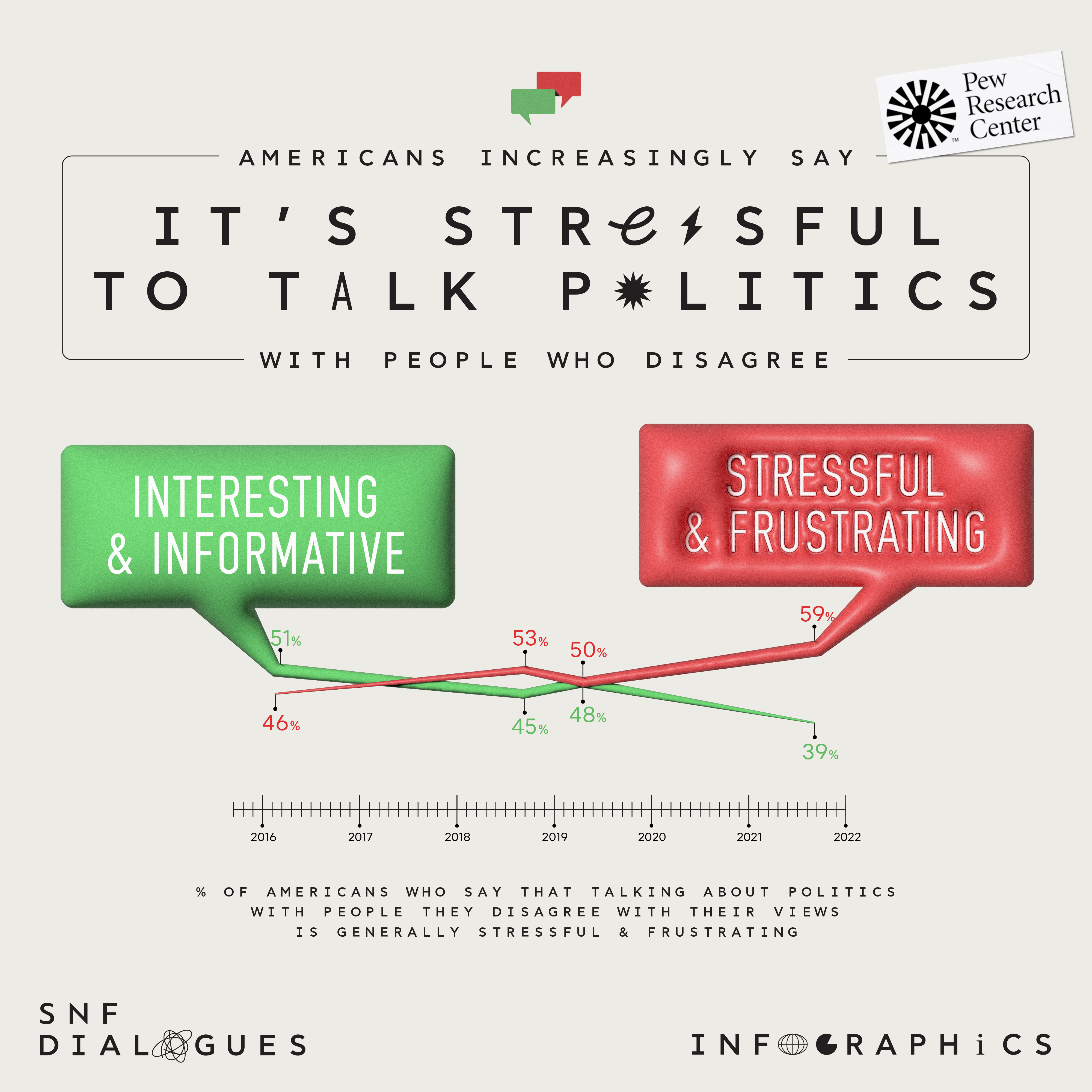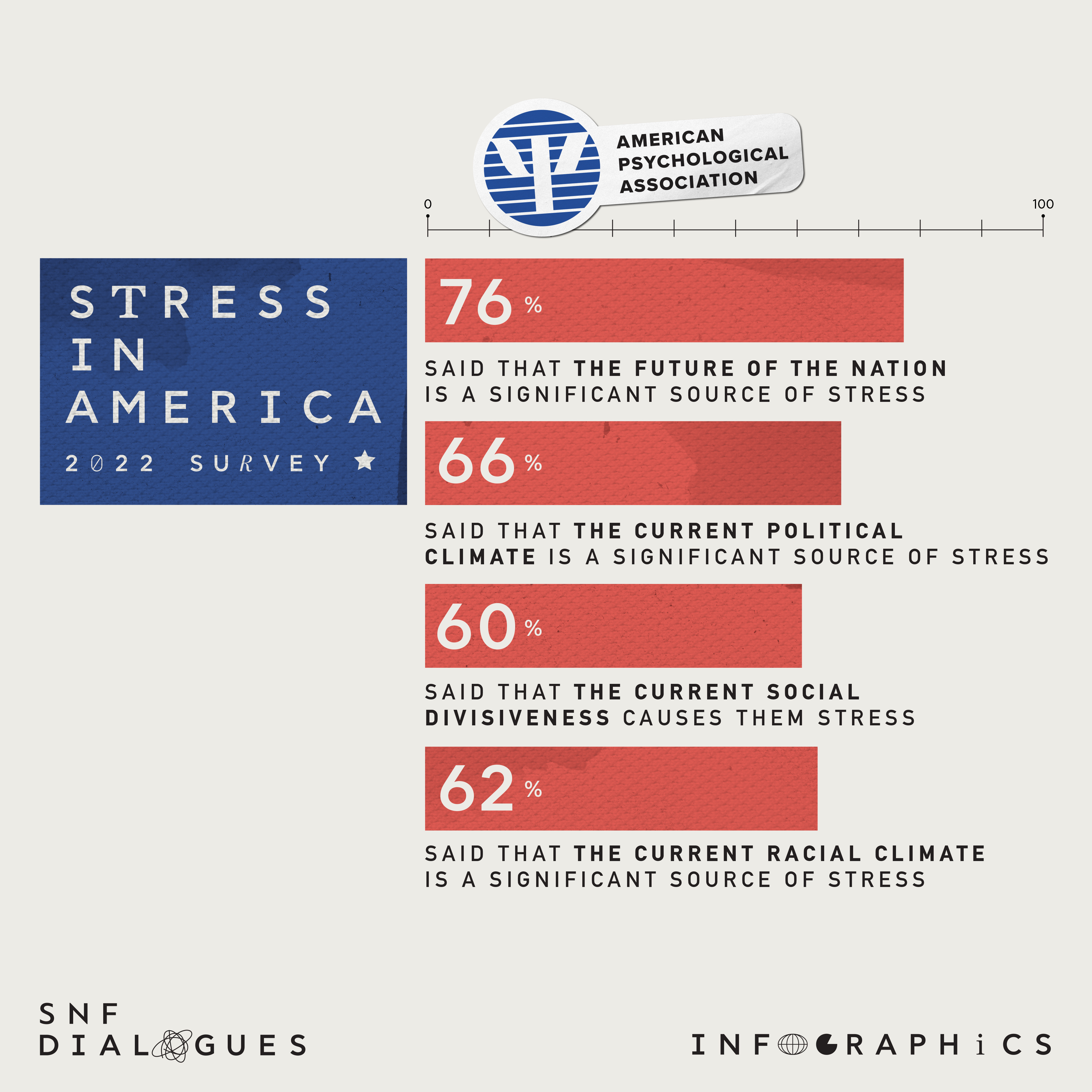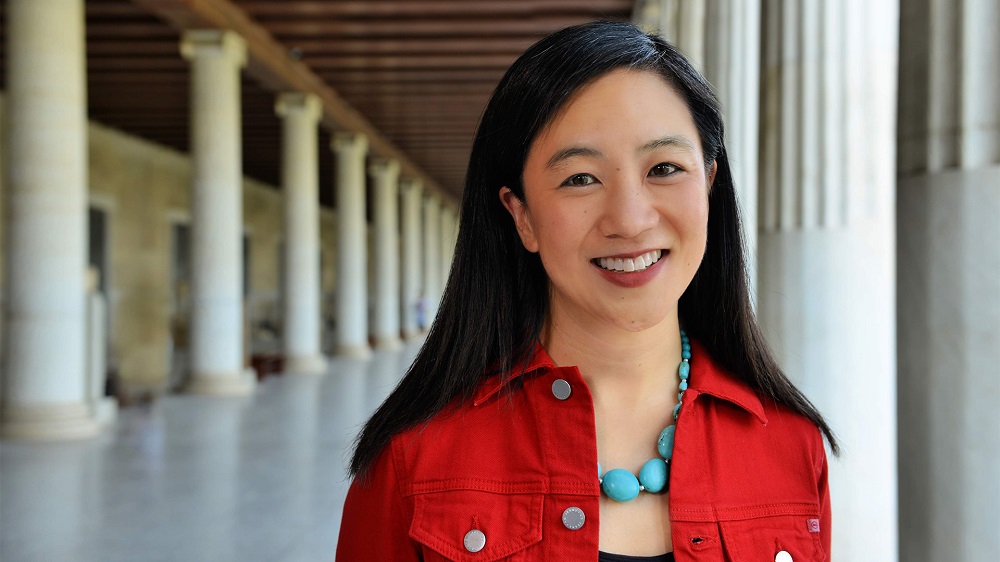Reconnecting in a Fractured Political Landscape
Anna Kynthia Bousdoukou
"For years, the French people have been torn between two visions of the future. One vision represents disorder and injustice, while the other (…) favors a select few over the majority," stated Marine Le Pen, a member of the far-right party Rassemblement National, when qualified to participate in the second round of the French presidential election against Emmanuel Macron, in April 2022.
On the other side of the globe, during his inauguration as President of the United States in January 2017, Donald Trump emphasized on the existence of two competing factions in America, "us and them". "Their victories have not translated into victories for you...Their triumphs have not been your triumphs", Trump highlighted[1].
Four years later, during a re-election rally in 2020, Donald Trump referred to his rival candidate Joe Biden as "Sleepy Joe". In response, Biden called Trump a "clown".
All those comments were observed by millions of voters, exposing them to intense, divisive political rhetoric. In a world confronted with pressing challenges like economic turmoil, social injustices, and war, politics should promptly provide viable solutions. At the end of the day, not only does politics not deliver but political polarization in public discourse appears to be spiraling out of control, becoming a deeply personal matter.

Visualization of polarization in 28 countries from the 2023 Edelman Trust Barometer Report. The more divided and entrenched a country is, the more severely it is polarized.
Among others, this phenomenon became the main topic of discussion of the SNF Dialogues that took place on Wednesday, the 21st of June, and kicked off the SNF Nostos Conference 2023 on Mental Health.
Leaders have a big role to play (…) Their motivations are often based on how to get more votes and how to get more money and…[they] create more conflict to get those things. Having leaders be more responsible participants in democracy (…) could tone things down.

Lilliana Mason, Associate Professor of Political Science at the SNF Agora Institute of Johns Hopkins University
Polarization, which arises when political discourse "encourages strong partisan or ideological divisions (…) through an 'us' vs. 'them' distinction", plays a pivotal role in political rhetoric as a recent research by iMEdD Lab, in collaboration with the Aristotle University's Datalab and ChatGPT, suggests. It also influences citizens' perception of politics, significantly impacting their moral outlook.
A lot of post-traumatic stress symptoms have a moral course” said Peter Ditto, Professor of Psychological Science at the University of California, Irvine, during the same discussion.
When you feel that it’s morally offensive what the other side is doing…it creates anger, anxiety, very often fear, particularly when they are in power, and you could see the connections between the political and the personal in this sort of situation.

Peter Ditto, Professor of Psychological Science at the University of California, Irvine

Pew Research Center survey (2016-2022) showing the shift from viewing political discussions among Americans with opposing standpoints as “interesting and informative” to viewing them as “stressful and frustrating”.
Further statistics seem to support this argument. According to the American Psychological Association Stress in America Survey conducted last year (2022), 66% of respondents identified the current political climate as a significant source of stress in their lives, while 60% reported stress due to social divisiveness.
Visualization of the 2022 Stress in America Survey results, particularly stress suffered by Americans due to the political climate and social divisiveness.
Hahrie Han, Director of the SNF Agora Institute at Johns Hopkins University also intervened in the SNF Dialogues discussion, offering a new dimension to the topic.
Is polarization the problem or is it the symptom of something bigger? Some of you might be surprised to know that in 1950 the American Political Science Association (…) issued a report saying that American politics was doomed because it was not polarized enough. In other words, they were concerned that we didn’t have enough polarization in America at that time because they understood disagreement and debate as fundamental to a healthy democracy.

Hahrie Han, Director of the SNF Agora Institute at Johns Hopkins University
“The way political discourse takes place today often makes us feel anger, insecurity, even fear. It also makes us feel disengaged, without any access and, at the same time, we are spectators of what is almost a derby, feel-like game between groups of people fighting for the win” underlined Anna-Kynthia Bousdoukou, iMEdD Managing Director, SNF Dialogues Executive Director, and journalist, who moderated the discussion.
During the same discussion, the audience had the chance to reply to relevant questions during a live poll, which also reflected the core issues raised by the speakers. For example, 95% of the respondents answered “yes” to the question “Have you ever felt angry because of politics?”, while 67% of the respondents answered “yes” to the question “Do you want to live in a world without polarization?”[2].
In an environment where political polarization not only influences our ideas but also impacts our psychology, our sense of belonging, and, consequently, our mental health, what happens to our democracies? On the first day of SNF Nostos, focusing on Mental Health, the SNF Dialogues, an initiative of the Stavros Niarchos Foundation (SNF), pointed toward the sociopolitical questions and the challenges that arise from the impact of polarizing public discourse on citizens’ mental health and in turn democracy. The discussion took place in collaboration with the SNF Agora Institute at Johns Hopkins University.
[1] The Time Magazine, January 20, 2017.
[2]170 people who participated in the discussion audience responded to this poll.
Hahrie Han on the relationship between polarization and mental health
Peter Ditto on the idea of grievance
Lilliana Mason on polarization and the ‘us vs them’ distinction
The SNF Dialogues are curated and moderated by Anna-Kynthia Bousdoukou, and are held through the journalism non-profit organization iMEdD (incubator for Media Education and Development).


